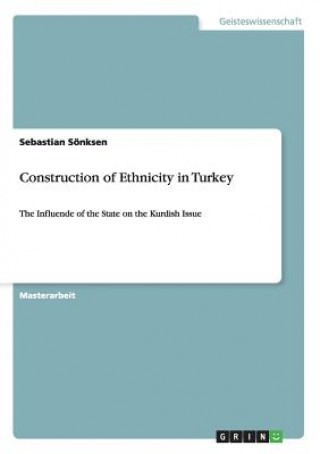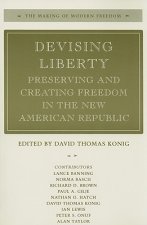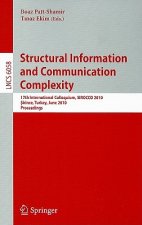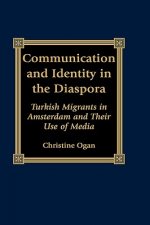
Kód: 05283224
Construction of Ethnicity in Turkey
Autor Sebastian Sönksen
Masterarbeit aus dem Jahr 2011 im Fachbereich Soziologie - Politische Soziologie, Majoritäten, Minoritäten, Humboldt-Universität zu Berlin, Sprache: Deutsch, Abstract: The thesis tries to understand the development of ethnic ident ... celý popis
- Jazyk:
 Němčina
Němčina - Vazba: Brožovaná
- Počet stran: 80
Nakladatelství: Grin Publishing, 2012
- Více informací o knize

Mohlo by se vám také líbit
-

AEsthetik der Ruinen
1022 Kč -

À toi ! - Vier- und fünfbändige Ausgabe 2012 - Band 3
343 Kč -

Performing Justice
2634 Kč -

Turkish Travelmate
161 Kč -

Anglo-Saxon Saints' Lives as History Writing in Late Medieval England
3576 Kč -

The Council of Europe
2955 Kč -

Chronology and Archaeology in Ancient Egypt
1805 Kč -

Advanced Processing of Metals and Materials (Sohn International Symposium)
5987 Kč -

Population History of Western U.S. Cities and Towns, 1850-1990
3699 Kč -

Caribbean Spaces
2986 Kč -

Port and Trade of Elizabethan London: Documents
2048 Kč -

English Register of Godstow Nunnery
1422 Kč -

Devising Liberty
903 Kč -

Structural Information and Communication Complexity
1681 Kč -

Communication and Identity in the Diaspora
4036 Kč -

Prophet and the Astronomer
617 Kč -

Globalization and Beyond
2399 Kč -

Emotional Intelligence
256 Kč -

Building the Trident Network
365 Kč -

My Life in San Juan Pueblo
812 Kč -

Analysing Sign Language Poetry
1681 Kč
Darujte tuto knihu ještě dnes
- Objednejte knihu a zvolte Zaslat jako dárek.
- Obratem obdržíte darovací poukaz na knihu, který můžete ihned předat obdarovanému.
- Knihu zašleme na adresu obdarovaného, o nic se nestaráte.
Více informací o knize Construction of Ethnicity in Turkey
Nákupem získáte 156 bodů
 Anotace knihy
Anotace knihy
Masterarbeit aus dem Jahr 2011 im Fachbereich Soziologie - Politische Soziologie, Majoritäten, Minoritäten, Humboldt-Universität zu Berlin, Sprache: Deutsch, Abstract: The thesis tries to understand the development of ethnic identification in the Turkish Republic. It focusses on Kurdishness and the current, seemingly paradoxical situation of a growing recognition of Kurdish ethnicity with a simultaneous increase of social tensions on this issue.In the theoretical part of the thesis, the concept of ethnicity is analyzed. This includes an examination of the etymology of the term and an introduction of the major schools of thought on ethnicity: primordialism and social constructivism. While primordialism defines ethnicity as a fixed identity constituted by objective and often physical characteristics like ancestry, skin color, or mother tongue, social constructive theories view ethnicity as a variable social category dependent on space and time. Two theories are of importance for the Turkish case: Nagel's (1994) social constructive model of ethnicity which underlines the influences and interrelations of the society, the state, individuals and groups in the social construction of ethnic categories, and Scott's (1990) argument that the perception of opposition on parts of a minority group leads to an increase in its ethnic identification. Based on these theoretical grounds, the empirical part examines the conceptions of Kurdish ethnicity in Turkey from the establishment of the Republic in 1923 until today. At first sight, the developments seem to have been oscillating non-systematically between the two poles of denial and recognition, and ended up in the contemporary paradox of an increasing recognition of Kurdish ethnicity facilitated by the politics of the contemporary AKP government on the one side, and growing social tensions on ethnic issues on the other side. But as the thesis argues, there are signs of a long-term process of increasing recognition of Kurdish ethnicity and growing interaction between parts of the society that define themselves and "Turkish" and "Kurdish". This development led to a stronger perception of opposition on the latter side, which in turn and according to Scott's theory strengthened their ethnic identification. The result of this process is the questioned paradox of recognition and conflict.
 Parametry knihy
Parametry knihy
1557 Kč
- Plný název: Construction of Ethnicity in Turkey
- Podnázev: The Influende of the State on the Kurdish Issue
- Autor: Sebastian Sönksen
- Jazyk:
 Němčina
Němčina - Vazba: Brožovaná
- Počet stran: 80
- EAN: 9783656212386
- ISBN: 3656212384
- ID: 05283224
- Nakladatelství: Grin Publishing
- Hmotnost: 113 g
- Rozměry: 210 × 148 × 5 mm
- Datum vydání: 11. June 2012
Oblíbené z jiného soudku
-

Amigurumis - soft and cosy!
433 Kč -

GND PAW Plüsch 15 cm Everest
366 Kč -

UNO No Mercy
531 Kč -

KLEINE PRINZ
129 Kč -

Trötsch Plüschpuppe Findus Kuscheltier
339 Kč -

Grammatik aktiv - Deutsch als Fremdsprache - 2. aktualisierte Ausgabe - A1-B1
463 Kč -

Harry Potter und der Stein der Weisen (Harry Potter 1)
250 Kč -

Amigurumis - small and sweet!
434 Kč -

Winnetou 1. Teil
1480 Kč -

Mein Kampf(German Language Edition)
652 Kč -

Mit Erfolg zum Goethe-Zertifikat C1
636 Kč -

Disney Rapunzel (Puzzle)
362 Kč -

Jujutsu Kaisen - Band 19
178 Kč -

Grammatik aktiv
497 Kč -

Triominos Classic
433 Kč -

Wir Kinder vom Bahnhof Zoo
262 Kč -

PAW PATROL Ryder Plüsch, 20 cm
299 Kč -

Avocado Smash
271 Kč -

GND PAW Plüsch 23 cm Skye
439 Kč -

GND PAW Plüsch 15cm Tracker
303 Kč -

Mit Erfolg zum Goethe C1. Testbuch + online
636 Kč -

Deutsch intensiv Wortschatz C1
449 Kč -

Schritte plus Neu 1
582 Kč -

Meine Reise durch Europa
320 Kč -

Duden 12+: Kennst du das? Meine bunte Kinderwelt (Würfel)
230 Kč -

Marble Rush - Ultimate Set XL100 E
1754 Kč -

Beste Freunde Arbeitsbuch A1.2 mit Audio-CD
260 Kč -

Momente A2.2: Kursbuch plus interaktive Version
223 Kč -

Momente A2.2. Arbeitsbuch plus interaktive Version
223 Kč -

GDH Deluxe Room Cakeys Küche
728 Kč -

Spektrum Deutsch A2+: Integriertes Kurs- und Arbeitsbuch für Deutsch als Fremdsprache
729 Kč -

Mein Kampf(German Language Edition)
888 Kč -

Im Westen nichts Neues
310 Kč -

Deutsch für clevere Kids - 5 Wörter am Tag
410 Kč -

Super! 2/A2: učebnice a pracovní sešit + CD zdarma
464 Kč -

Auto-Katalog 2024
351 Kč -

Tarot-Kartenset: Magic Soul Tarot
572 Kč -

Tempo, kleine Fische!
212 Kč -

My Rummy
546 Kč -

Projekt C1 neu: Lehrerbuch mit Audios online
1092 Kč -

Deutsch Großes Übungsbuch Wortschatz aktuell A2-C1. Buch
785 Kč -

Geheim-Codes
294 Kč -

Clever 4ever, Challenge Block, 12 Stück
146 Kč -

Insel der blauen Delphine
198 Kč -

Der Vorleser
310 Kč -

Alpe Adria Radweg
449 Kč -

Hitster - Summer Party
589 Kč -

Prüfungstraining DaF - C1
622 Kč -

Wizard
215 Kč
Osobní odběr Praha, Brno a 12903 dalších
Copyright ©2008-24 nejlevnejsi-knihy.cz Všechna práva vyhrazenaSoukromíCookies



 Vrácení do měsíce
Vrácení do měsíce 571 999 099 (8-15.30h)
571 999 099 (8-15.30h)